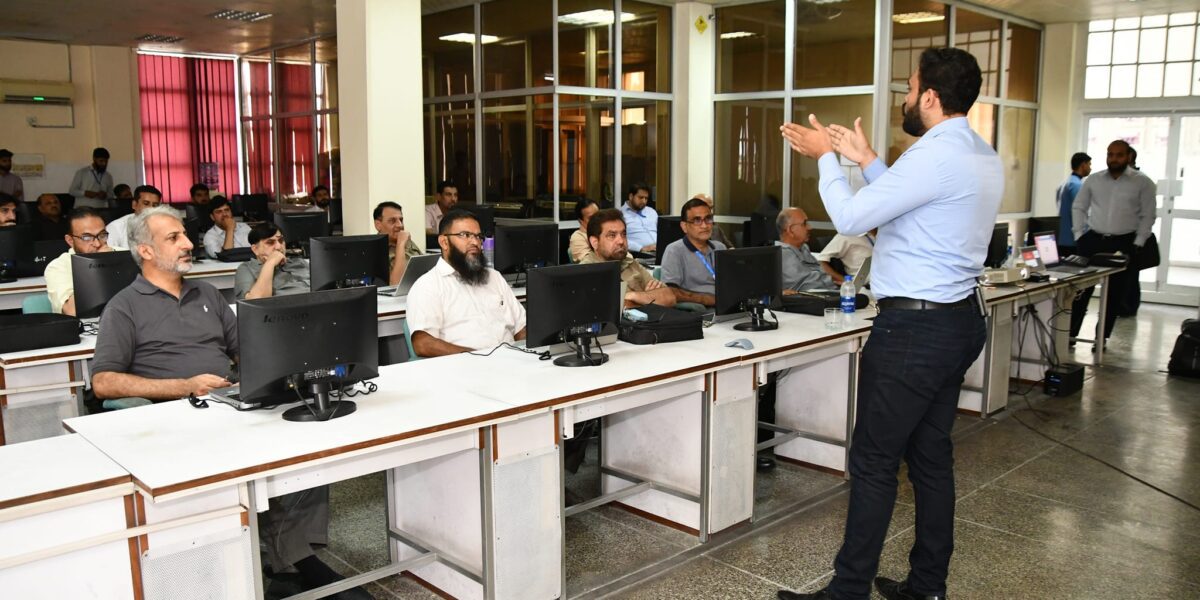In today’s rapidly evolving digital landscape, education and training have undergone a paradigm shift. Traditional methods of learning are being replaced by innovative technologies that enhance accessibility, engagement, and effectiveness. At the forefront of this transformation is the lms meaning, a powerful platform revolutionizing the way we learn, teach, and train. In this article, we delve into the multifaceted world of LMS, exploring its features, benefits, and the profound impact it has on education and beyond.
Understanding Learning Management Systems:
A Learning Management System (LMS) is a software application designed to administer, document, track, and deliver educational content or training programs. It serves as a centralized hub where instructors, learners, and administrators interact in a virtual learning environment. LMS platforms come equipped with a myriad of features tailored to facilitate various learning activities, such as course creation, content management, assessment, communication, and analytics.
Key Features and Functionality:
Course Creation and Content Management: LMS platforms empower educators to design and develop interactive courses tailored to their learners’ needs. With intuitive authoring tools, instructors can create multimedia-rich content, including videos, presentations, quizzes, and assignments, fostering an engaging learning experience.
Accessibility and Flexibility: One of the defining features of Learning Management System is its accessibility and flexibility. Learners can access course materials anytime, anywhere, using any internet-enabled device. This flexibility eliminates geographical barriers and enables individuals to pursue education and training at their convenience, accommodating diverse learning styles and preferences.
Assessment and Progress Tracking: LMS platforms offer robust assessment tools to evaluate learners’ comprehension and progress. From quizzes and exams to peer assessments and simulations, instructors can gauge learners’ performance accurately and provide timely feedback for improvement. Additionally, built-in analytics allow administrators to track learners’ engagement, monitor course effectiveness, and identify areas for enhancement.
Communication and Collaboration: Effective communication is essential for fostering collaboration and community in a virtual learning environment. LMS platforms facilitate seamless interaction between instructors and learners through discussion forums, messaging systems, and virtual classrooms. These collaborative features encourage peer-to-peer learning, knowledge sharing, and networking opportunities, enriching the overall learning experience.
Personalization and Adaptive Learning: LMS platforms leverage advanced algorithms to personalize learning paths based on individual learners’ preferences, proficiency levels, and learning objectives. Through adaptive learning techniques, content recommendations, and adaptive assessments, instructors can tailor the learning experience to meet each learner’s unique needs, maximizing engagement and retention.

Benefits of Learning Management Systems:
Enhanced Accessibility: By breaking down geographical barriers and offering anytime, anywhere access to learning materials, LMS platforms democratize education and training, making it accessible to a broader audience, including remote learners, working professionals, and individuals with diverse needs.
Improved Engagement and Retention: The interactive and multimedia-rich nature of LMS courses fosters engagement and active participation among learners. Features such as gamification, discussion forums, and social learning tools captivate learners’ interest and promote knowledge retention, resulting in higher completion rates and better learning outcomes.
Cost-Efficiency and Scalability: LMS platforms offer a cost-effective alternative to traditional classroom-based training, eliminating expenses associated with travel, venue rentals, and printed materials. Moreover, LMS scalability allows organizations to efficiently scale their training initiatives to accommodate growing learner populations without significant overhead costs.
Data-Driven Insights: LMS platforms generate valuable data insights that inform instructional design, curriculum development, and performance evaluation. By analyzing learners’ interactions, progress, and outcomes, educators can identify trends, assess the effectiveness of teaching strategies, and make data-driven decisions to optimize learning experiences.
Continuous Learning and Professional Development: In today’s knowledge economy, lifelong learning is paramount for personal and professional growth. LMS platforms facilitate continuous learning by offering a diverse range of courses, certifications, and microlearning modules that enable individuals to acquire new skills, stay abreast of industry trends, and advance their careers.
Impact of LMS Beyond Education:
While LMS platforms are predominantly associated with educational institutions and corporate training programs, their impact extends far beyond traditional learning environments. Here are some areas where LMS is making a significant difference:
Corporate Training and Development: LMS platforms have become indispensable tools for corporate training and development initiatives. From onboarding new employees to delivering compliance training and upskilling existing workforce, LMS streamlines training processes, reduces training costs, and enhances employee productivity and performance.
Healthcare and Medical Education: In the healthcare sector, LMS platforms facilitate medical education, training, and professional development for healthcare professionals, students, and practitioners. Virtual patient simulations, case-based learning, and continuing medical education (CME) programs delivered through LMS platforms enhance clinical skills, promote evidence-based practice, and improve patient outcomes.
Government and Public Sector: Government agencies and public sector organizations leverage LMS platforms to deliver e-learning solutions for workforce development, citizen engagement, and capacity building. Whether it’s training government employees on regulatory compliance or providing citizens with access to educational resources and online services, LMS platforms play a pivotal role in driving digital transformation and improving public service delivery.
Nonprofit and NGO Sector: Nonprofit organizations and NGOs utilize LMS platforms to deliver educational programs, capacity-building initiatives, and advocacy campaigns to diverse communities and stakeholders. By leveraging technology to disseminate knowledge, promote social causes, and empower underserved populations, LMS platforms contribute to positive social change and sustainable development goals.

Challenges and Considerations:
While LMS platforms offer numerous benefits, they also pose certain challenges and considerations that organizations need to address:
Technical Infrastructure and Support: Implementing and maintaining an LMS requires robust technical infrastructure and dedicated support resources. Organizations must ensure compatibility with existing systems, address bandwidth and connectivity issues, and provide adequate training and support to users.
Content Quality and Accessibility: The quality and accessibility of course content are crucial factors that influence the effectiveness of an LMS. Educators must create engaging, inclusive, and accessible content that accommodates diverse learners’ needs, including those with disabilities or limited English proficiency.
Data Privacy and Security: With the proliferation of online learning platforms, data privacy and security have emerged as significant concerns. Organizations must implement robust data protection measures, comply with relevant regulations such as GDPR and COPPA, and safeguard learners’ sensitive information against unauthorized access, breaches, and cyber threats.
User Engagement and Motivation: Maintaining learner engagement and motivation in an online learning environment can be challenging. Educators must leverage interactive content, gamification strategies, and social learning features to keep learners actively involved and motivated throughout the learning journey.
Conclusion:
In conclusion, Learning Management Systems (LMS) have revolutionized the way we learn, teach, and train in the digital age. By harnessing the power of technology, LMS platforms offer unparalleled accessibility, engagement, and effectiveness, empowering individuals and organizations to unlock their full learning potential. As we navigate the ever-evolving landscape of education and training, LMS will continue to play a pivotal role in shaping the future of learning, driving innovation, and fostering lifelong learning opportunities for all.


Recent Comments